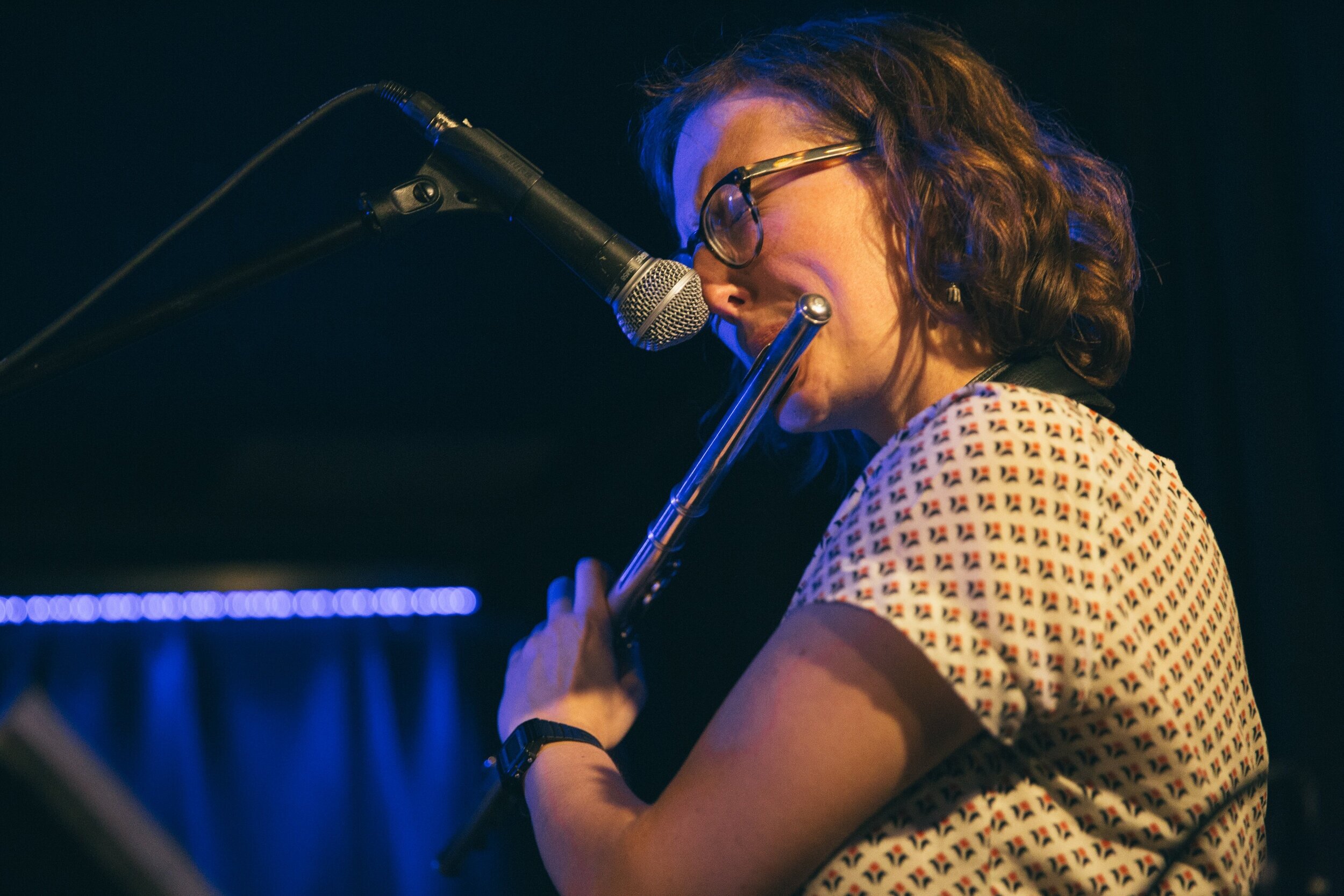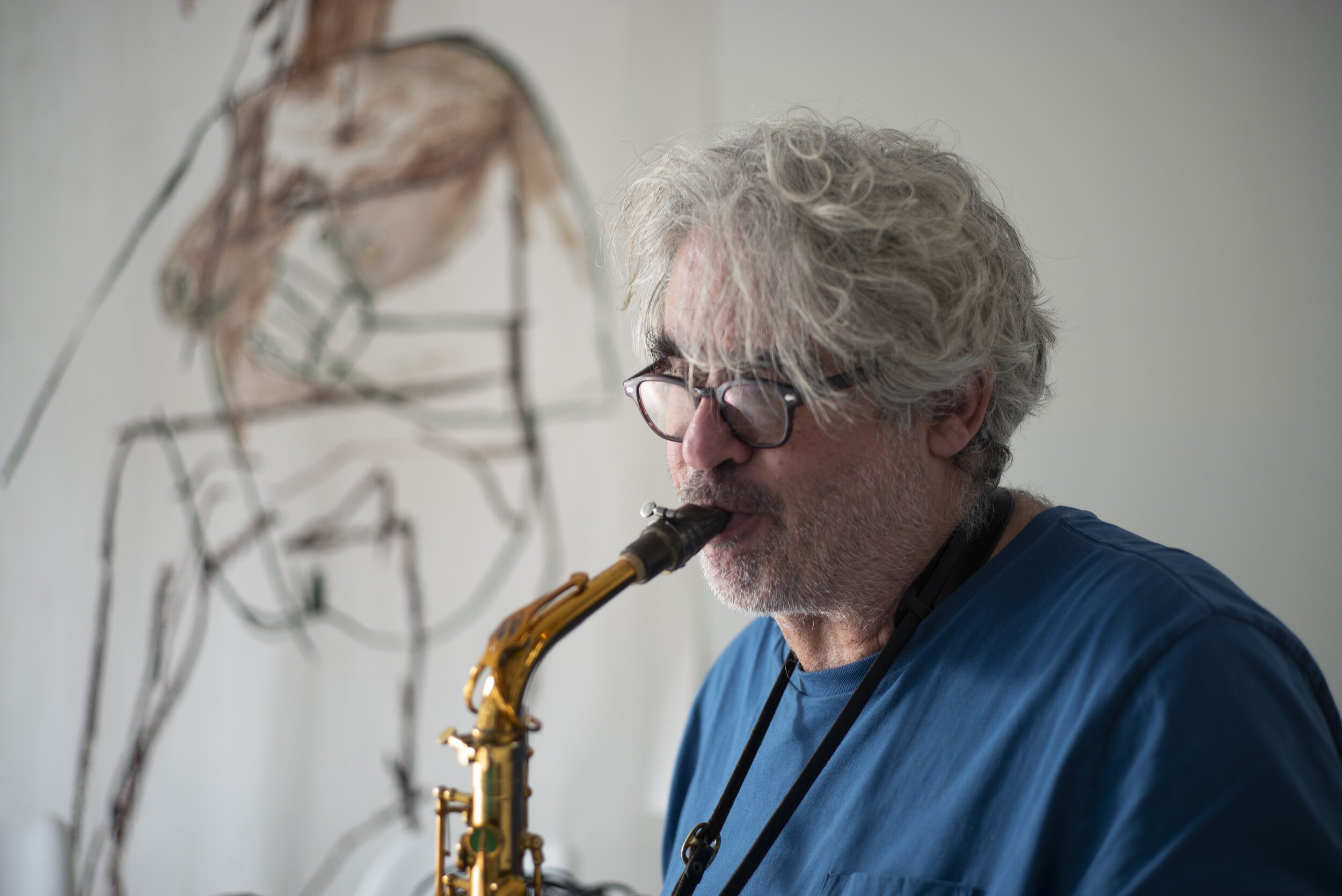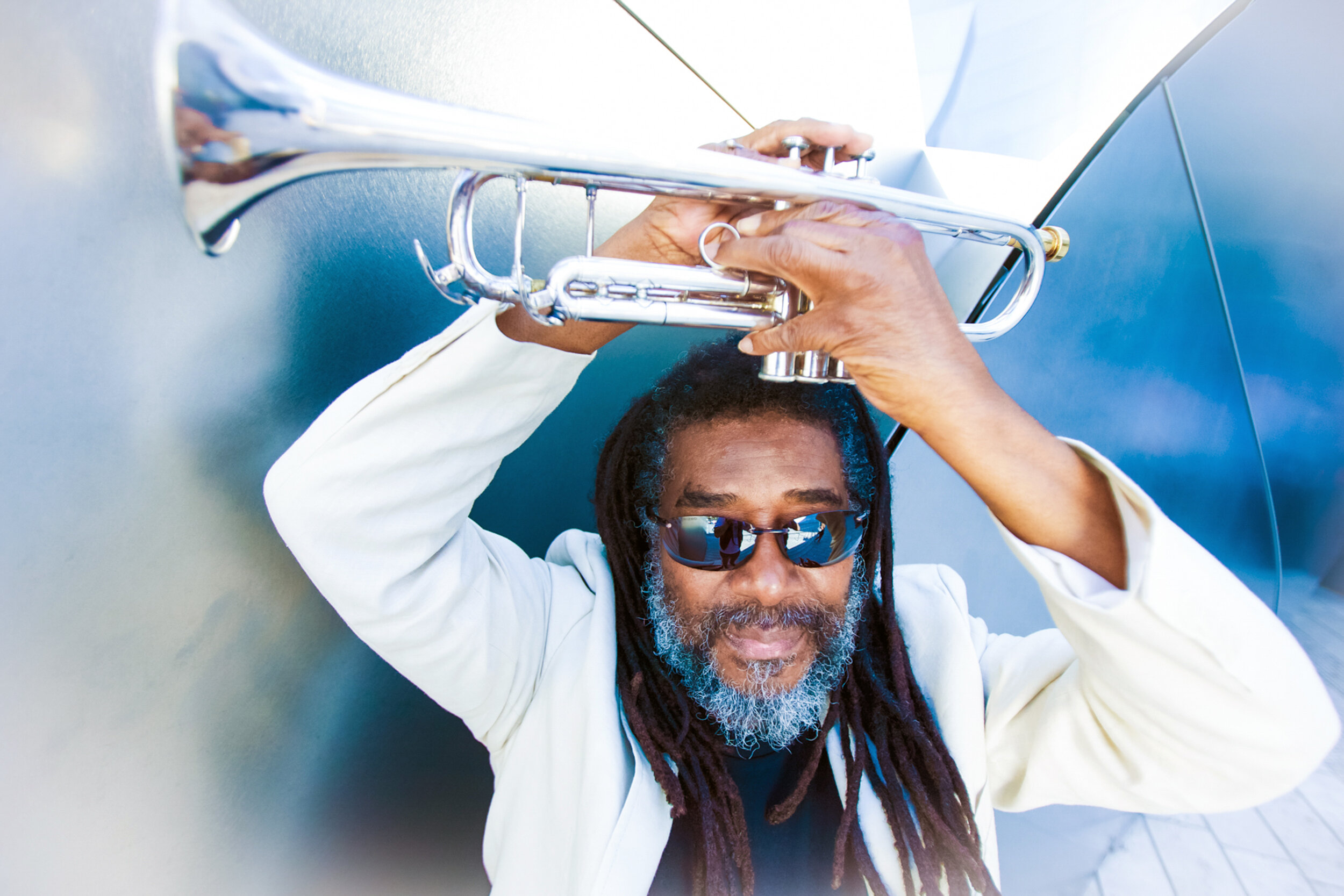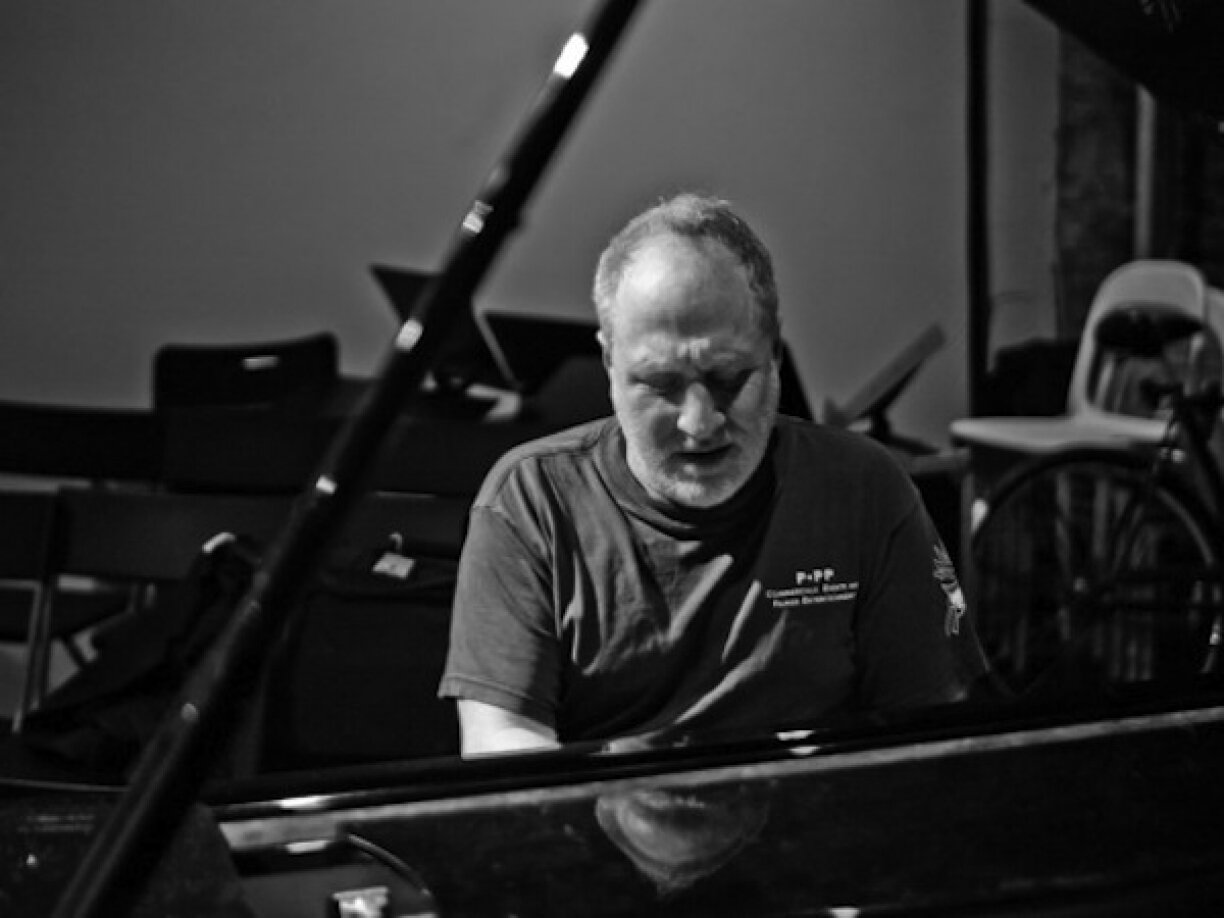
Michael Formanek
-Tony Williams
MF: A true genius! He would have been 75 the other day had he not died tragically, way too early, at 51. It just hit me that when I played with him he was only around 32, I think. He had already changed jazz drumming and helped change jazz music more than once by that age. I came up listening to the recordings he made between 1963 and 1976, but I played with him in 1977! Everything from Four and More to Believe It, and all that was in between, i.e. Miles Smiles, ESP, Nefertitti, The Sorcerer, Maiden Voyage, Fuchsia Swing Song, Out To Lunch, Point of Departure, Filles de Kilimanjaro, In a Silent Way, Life Time, Spring, Emergency, Turn it Over, V.S.O.P., etc, etc, etc! I sometimes drove with him in his BMW 530i when we would go on tour. We, mostly he, drove from Southern California to Phoenix, practically non-stop. Barely a word was said the entire time. He just smoked his cigar and drove. That was pretty much it. He got a speeding ticket, and at one point mentioned that he might want to stop off at Wayne Shorter’s house on the way back to San Francisco. That didn’t happen.

Anna Webber
-Practicing/studying.... routines.... for writing and playing
I like structure, and I tend to structure my day-to-day pretty rigidly. This has especially been the case in pandemic times, where there's been zero outside structure. So I practice at the same time every day, write at the same time every day. This helps keep me sane and balanced. It also helps me make sure that I'm getting in time for non-musical things that are important, ie exercise, reading, etc. I follow this method of organization through into my practice routine. I break up my practice time into 10 minute blocks, because that feels like the amount of time I can focus on a given exercise without just going through the motions, and it also allows me to focus on a bunch of different aspects of my playing over the course of a practice session. I split my practice time evenly between flute and saxophone, and re-assess my practicing goals on a regular basis. This kind of structure definitely doesn't work for everyone, but it's always worked for me!

Benoît Delbecq
-The meaning of tradition to you?
Tradition is a great thing but a great thing to be concerned about too. What I mean is that when an art becomes a constellation of habits that won’t change anymore, and therefore stops its evolution, I’m not as interested. Since art thrusts sparkle at a certain moment of a certain human group life, it belongs to its time, I think. And shows the way for the future artists too. Art is a way to honor, through creativity, the fact of being alive and I don’t see the point in trying to reproduce something of the past as if it were the very truth or something. Especially when the practice is in eternal motion, like Jazz is! Or then it becomes like written music – that’s totally ok with me, but it becomes a total different thing than an evolving creative music. Once again, recycling is more creative than celebrating or copying or cloning. How to celebrate Louis Armstrong ? I would just shut up and play his records loud with windows wide open to the outside of the street – should do that more often ! There is this trend in the US to over celebrate “American classical music”, I think. It’s a complex debate. Once the inventors of different styles are gone, the style cannot be played with such strength and relevance, I think, there can never be the same thrust or pyrotechnics that made the floors and walls vibrate a special way. Everyone is free to do what they want, but I’m always skeptical when I hear younger players trying to play their mythology of the very Bud Powell style… I hear something that doesn’t work – but that’s just my feeling of course.
Another story with Mal Waldron. In 1989 or so, I had an offer from BMG France to record a trio record. The producer who produced some of Lacy’s records at that time said to me “What if we worked on a Homage to Monk record?”. I had not released anything yet under my own name, I was only 22 or 23, but soon after this offer, Mal came in town. So I asked him for advice. And he said “If you wish to pay homage to Monk, well the thing he would have liked is that you record your own music. There is no better way to pay tribute to Monk than to make your own thing.” I think Mal’s views of course have stayed as a definite intake. I actually said to the BMG guy “let’s do something with my compositions!”, and I never heard from him again.
Now, the knowledge and understanding of traditions in music is of course most important to become a pertinent artist, at many levels. I still playfully study bebop improvisation for instance – it may surprise a number of people reading this, but, yeah, it’s a wonderful game to play and so many creative strategies can be imagined… it’s a different axis of practice to keep my mind alert, but I would never record a be-bop record, it doesn’t make sense to me. Now, one may hear the presence of bebop in my playing, there is something there, obviously. Like a memory of it, and that’s on purpose, I like to play games with the memory of the listener a lot. Also, I always relax about my views and geography of the keyboard when I switch to playing/reading some Scarlatti or Bach etc. And I learn a lot from my peers, too, all instruments. I think there is a way to create your own little tradition – that’s how one should find his/her voice, isn’t it?

Craig Taborn
-The Piano…. what does the piano mean to you?
I do so many things with electronics and keyboards, but at the end of the day I have a really specific relationship with the piano. That said, things I hear in my head are often beyond the piano. I am not conceptualizing my music pianistically but I am using pianism to get to the sounds that I am imagining. I am trying to get to an orchestrational thing, in a Duke Ellington kind of a way. However, my relationship to the instrument is such a long and comfortable and constant element in my life. Much more so than with electronics because that is such a constantly changing environment. In a way I am much more comfortable at the piano than doing anything else anywhere in life!

Tim Berne
Composer, saxophonist, label owner (interview conducted on Zoom)
In addition to what you’ve already talked about, what are some of your main compositional influences?
Well, influences, I can tell you who I like which is Lutoslawski’s cello concerto, jazz people like Threadgill, Braxton, Wadada, Julius, Oliver, and then playing-wise I was way into Sonny Rollins, Joe Henderson, Miles, all the obvious things but composing (I’m sure I’m leaving stuff out) that mid-west crew of rubato improvising …melodic improvising…collective improvising and then the way of wedding composition with improvising, not just playing the head and blowing over a set form which is also cool. I think because of my limitations I did gravitate towards that. I didn’t feel like I could play well enough to carry tune structures so I waited until a couple of years ago. Those are the guys who influenced me but really it was Julius and Roscoe and Braxon and the rest is people I like but in terms of trying to copy that shit that was it, I think.

Fay Victor
vocalist, composer, lyricist (interview conducted via e-mail)
-Misha Mengelberg
My hero, mentor and friend.
A visionary musician, composer and bandleader with a deep reverence for the jazz heroes he adored such as Duke Ellington, Thelonious Monk and Herbie Nichols. Misha literally changed how improvised music and jazz was seen in the Netherlands. He demanded and got respect -- and money -- for it, bought it into the subsidized sector of classical music. Up until the late aughts, improvised music and the structures that support it in the Netherlands were given money by the state.
He was the first musician I encountered that didn’t feel limited by any idea. Liberating for me, that way of being gave me more permission to go in the way that felt right to me. We’d have the most amazing and surreal conversations! Misha also was the first to encourage me to write lyrics to Herbie Nichols and Thelonious Monk tunes. He always wanted to see what I was up to and when we’d chat, I’d share what I was working on. The more I wrote the more he encouraged it. Misha felt that Herbie Nichols melodies were ‘singable’, and I absolutely agree. Misha led by example of how to be just who you are no matter what anyone says. You never knew how Misha would react to anything. He was so damn honest! He was his own person, mind, being. I really, really miss him.

Terri Lyne Carrington
drummer, composer (interview conducted via e-mail)
-Gender Justice
Gender justice is my life’s work at this point. We don’t know the full potential of the music until we have gender equity. But I am encouraged because it’s moving in the right direction and it seems like a lot of people are conscious of this now. Young women coming up now will have it easier than young women did even 10 years ago. Same for the whole range of the gender expression/identity communities.

Kris Davis
pianist, composer
Music and social consciousness
We live in a very different time now, and discussions around privilege, race, class, gender, patriarchy and sexual orientation are becoming more commonplace. It’s easier to talk about all these issues because we’re talking collectively; in the case of gender disparity, the burden of speaking up no longer falls squarely on the shoulders of only a few women musicians. The culture is shifting and younger generations are educating themselves, speaking up and looking to change the culture, demanding it be more inclusive. It’s a very exciting time and change feels imminent.

Wadada Leo Smith
trumpeter, composer
The meaning of tradition?
Tradition means that you observe what has been done before. That observation doesn’t mean that you have to learn how to do what tradition has done from the beginning to the end because that means that your life would be meaningless. But tradition means that you observe, either intellectually or culturally through some kind of perception about what that means and what has occurred before but you can only want and only gain access to tradition only when they add something to it. Not when they join it and just become practitioners of it. Every artist must add a niche though however thin it might be so that the tradition itself can grow and grow.

Ran Blake
pianist, composer, educator
Third Stream
This is a beautiful river that Gunther coined the term for…he describes it as the Connecticut river and the Mississippi, where they would become cellmates for a while. Of course, he says these two rivers and their meetings took place for centuries before he coined the word. And now the river can be the Nile River from Egypt and the Ganges from India and they might totally avoid the Mississippi and form other streams all over the world.

Joe Morris
guitarist, improviser, bassist
Jazz
I only call what I do Jazz when it’s more convenient than what I prefer to call it, which is Free Music. The term Jazz is so burdened by opinion, confusion, and frankly, racism that I just think it’s too limiting on everyone. It dumbs down so many of the ideas that inform the music. I know that many great musicians rejected the name and some prefer Creative Music, which is certainly better, but to me that is also confusing and has become a term associated with one period in this music. I say Free Music meaning music made by people who are not burdened by the oversight of any institution, critical, or commercial establishment. In other words, music made any way people want to make it.

Sam Newsome
soprano saxophonist, composer
Identity
Finding our musical identity is complicated. We're taught in a way that leads us to live vicariously through the artistic vision of others.

Sheila Jordan
vocalist
You have said before that “Music saved my life!” Could you elaborate a bit?
I grew up in an alcoholic family. My grandparents raised me. My mother was only 17 when I was born so my grandparents raised me until I was 14 years old and everybody drank. Everybody in the family had a drinking problem, so the only way I felt happy when I was a kid was singing. But I was singing all the time. My grandfather called me “little song” because I was constantly singing. That’s how music saved my life because every time I felt sad or something not so nice happened in my life, I would sing about it.

Jason Moran
pianist, composer
Jaki Byard
When I was 18, I attended Manhattan School of Music with the sole purpose of studying with Jaki Byard. Byard used the piano in a way that combined inventiveness with history. He balanced them with ease and humor, but most importantly with RIGOR. I definitely learned this directly from him, every Monday afternoon for 4 years straight.

Anthony Coleman
pianist, composer
Duke Ellington
If I start to talk about Ellington it would be a conversation of several hours - at the very least. He was really the key figure in my early artistic life. He was my model; he was my guru. Everybody who knew me when I was growing up knew this. It was a beautiful accident of history that I was able to spend those last couple of years of High School in close contact with the Ellington Band and I got to spend some time at Duke’s elbow. Of course I was too young for any of this, but Thank God I was able to do it, because had it been just a couple years later it would not have happened. But I also have to say that I’m very lucky that I was marked by Monk and Cecil Taylor at the same time, because it made me understand that taking Ellingtonisms literally was not going to be the way that I could honor Duke’s importance to me in the deepest way. I think it’s a shame that this aspect of Cecil’s work – his radical reshaping of Duke’s influence on him - is still so polarizing for some people. I guess it speaks to its power, but I still find people so limited in their inability to hear the way that a great artist transforms influence into their own vision when the stylistic markers are pretty radically different.
